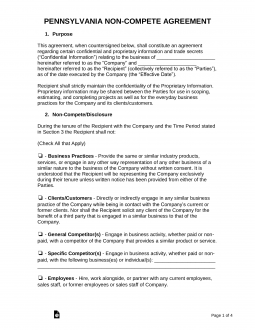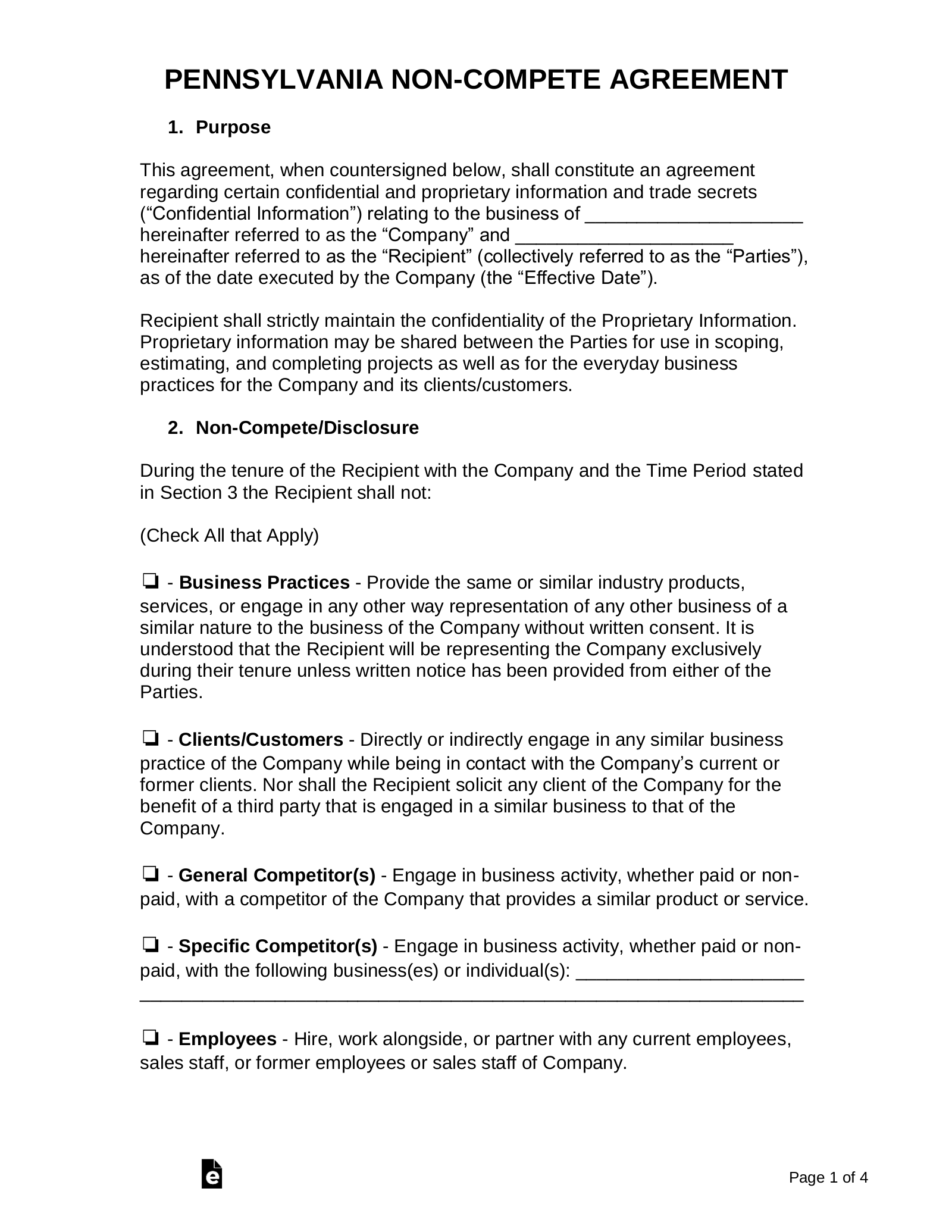Updated February 27, 2024
A Pennsylvania non-compete agreement is legal to protect the employer’s business interests for a specific time period and geographic extent. A non-compete must balance safeguarding an employer’s legitimate business and an employee’s claim to earn a living.
Laws
Legally Enforceable?
Yes, a non-compete is legally enforceable if it meets the Supreme Court requirements:[1]
- Where they are incident to an employment relationship between the parties to the covenant;
- The restrictions are reasonably necessary for the protection of the employer; and
- The restrictions are reasonably limited in duration and geographic extent.
Balance Test
To determine whether or not a non-compete a reasonable, a court will apply the “balance test” as described:[2]
“In determining whether to enforce a non-competition covenant, this Court requires the application of a balancing test whereby the court balances the employer’s protectible business interests against the interest of the employee in earning a living in his or her chosen profession, trade or occupation, and then balances the result against the interest of the public.”
Continued Employment
A promise of continued employment is not sufficient consideration for an employee to enter into a non-compete.[3]
However, if the employee gets a “corresponding benefit or change in status,” the non-compete will be determined to have sufficient consideration.[4]
Attorneys (prohibited)
An attorney is prohibited from entering into a non-compete or any covenant that restricts their right to practice law.[5]
Maximum Term
- Employment: 2 years has been deemed reasonable.[1]
- Sale of a Business: 5 years has been deemed reasonable.[2]
Geographic Limitation
Any area where a business does not serve is “unreasonable and hence unenforceable.”[6]
Blue Penciling
A court can modify a non-compete if it doesn’t provide “an intent to oppress the employee and/or to foster a monopoly.”[1]


